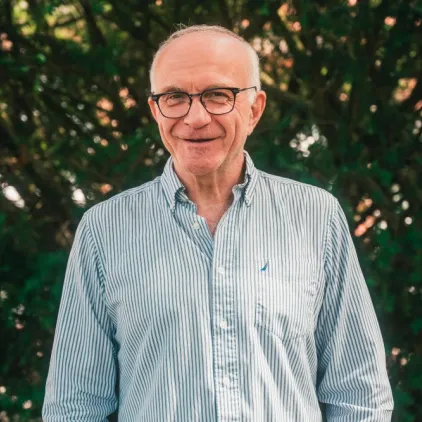

Prof. Dr. Isak Frumin
- Higher education innovations
- Education technologies
- Agency in life trajectories
- Conflict resolution
Academic Degrees
Work Experience
International Fellowships
- 1994 Visiting Fulbright Scholar. University of Washington. Seattle.
- 1996 Visiting Scholar. Lancaster University, UK
- 1998 Visiting Scholar, University of Indiana, Bloomington
- 1997, 1998, 1999 Visiting Scholar. University of Hawaii, Honolulu.
- 2012 Visiting Scholar. MIT, Boston
- 2022 Visiting scholar. Boston College
Academic awards and services
- Fellow of International Academy of Education
- Member of Global Education Deans Forum
- Award for the Best Research in Education in Russia (2004, 2013)
- Founding member of Global Observatory Higher Education Changes
- Member of Advisory Council of UNESCO Institute of Information Technologies in Education
- Member of the editorial boards of 11 journals
1. Dobryakova, M., Froumin, I., Barannikov, K., Moss, G., Remorenko, I., Hautamäki, J. (eds) Key Competences and New Literacies. UNIPA Springer Series. Springer, Cham. 2023
2. Chakseliani M., Fedyukin I., Froumin I. (Eds.) Research mission of teaching universities. Palgrave Macmillan. 2022
3. Altbach Ph., Reisberg L., Salmi J., Froumin I. (Eds.) Accelerated Universities: Ideas and Money Combine to Build Academic Excellence. Brill-Sense Publ. 2018
4. Carnoy M., Froumin I., Leshukov O., Marginson S. (Eds). Higher Education Governance in Federal Countries. Sage, 2018
5. J. Huisman, A. Smolentseva, I. Froumin (Eds). 25 Years of Transformations of Higher Education Systems in Post-Soviet Countries. Reform and Continuity. Palgrave Macmillan, 2017.
6. Carnoy M., Loyalka P., Dobryakova M. S., Dossani R., Froumin I., Kuhns K., Tilak J. B., Rong W. University Expansion in a Changing Global Economy: Triumph of the BRICs?. Stanford : Stanford University, 2013
7. How Сan Education Become the Driving Force of Socioeconomic Development? - ed. by Ya. Kuzminov, I. Froumin, and P. Sorokin, HSE University, 2022
8. Russian Schools: the Early 21st Century - ed. by S. Kosaretsky and I. Froumin, HSE University, 2022
9. Adult Education in Russia: Never Stop Learning - ed. by I. Korshunov and I. Froumin, HSE University, 2022
Frumin, I., Vorochkov, A., Kiryushina, M., Platonova, D., & Terentiev, E. (2025). Mapping the generative AI research education: 2022-2024 insights. Higher Education Quarterly, 79 (1). https://doi.org/10.1111/hequ.70075
Pausits, A., & Frumin, I. (2025). How to Observe Changes in Higher Education? Introduction to the Annual Report of GOHEC. Journal of Research and Innovation in Higher Education, 6(1), 1-12. Retrieved from https://rihe-journal.com/index.php/rihe/article/view/58
Frumin, I., & Kalgin, A. (2025). Digital Transformation and Growth in Germany’s Private Higher Education. International Higher Education. https://doi.org/10.6017/895b9e0d.3e80046c
Xiao, J., Bozkurt, A., Nichols, M., Reinders, H., Tlili, A., & Burgos, D. (2025). Venturing into the unknown: Critical insights into grey areas and pioneering future directions in educational generative AI research. TechTrends, 69(5), 582–597. https://doi.org/10.1007/s11528-025-01060-6
Frumin, I., & Platonova, D. (2024). The socialist model of higher education: The dream faces reality. Daedalus, 153(2), 178–193. https://doi.org/10.1162/daed_a_02073
Frumin, I. (2024). The cost to education development: A personal story. International Journal of Educational Development, 109, 103089. https://doi.org/10.1016/j.ijedudev.2024.103089
- Study of European private universities in the context of digital transformation
- Study of Generative AI dissemination in higher education
- Study of the role of universities in the development of constructive conflict resolution skills
